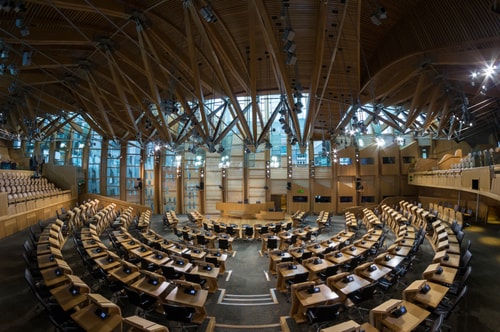The first week in September signalled the return of Holyrood after the summer recess and with it the new programme for government for the coming parliamentary year. The previous parliamentary session had finished at the end of June with a dramatic week that included a large Cabinet and Ministerial reshuffle (with one nomination subsequently being withdrawn) and the dropping of the Scottish Government’s flagship Education Bill. Both these factors meant there were a number of areas of policy uncertainty coming into this new session.
Brexit, and any possible moves towards another independence referendum, remains certain to dominate the debate over the coming months, but there are a number of new proposed bills, both within the programme for government and from members, that will be key features in the months ahead.
The main themes from Scottish Government this year focus on long-term investment in the economy and, related to that, several proposals for children and young people. There is also a major new focus on funding and provision of mental health services. Twelve bills are proposed in total, covering areas from family law to electoral franchise. This is, of course, in addition to legislation currently before parliament in areas such as climate change and the named person. Of the new member’s bills, perhaps the most notable is the proposal for a smacking ban which was brought by John Finnie MSP.
"As always, there’s a mixed bag in the proposals with areas to commend and areas of concern, and numerous opportunities for us to provide a clear, credible, compassionate and creative Christian engagement in response."
As always, there’s a mixed bag in the proposals with areas to commend and areas of concern, and numerous opportunities for us to provide a clear, credible, compassionate and creative Christian engagement in response. We absolutely welcome the Scottish Government’s commitment to improving mental health, the continued focus on tackling homelessness, child poverty and loneliness, and the consideration of how government can better serve communities through the upcoming local government review. We’ll be engaging in these areas through our partnership with Serve Scotland over the coming months. All of these, along with the climate change plans, resonate strongly with a Christian view of human flourishing, supporting the vulnerable, and good ethical and environmental stewardship.
In other areas there are continued concerns. The thinking behind the named person and smacking ban, whilst both genuinely well intentioned in their desire to protect the vulnerable, seems to run a real danger of undermining family autonomy at a time when we need to be doing all we can to support parents and families, which (along with the church) are part of God’s building blocks for society, providing the foundation for our flourishing. Related to this, some of the recommendations in plans for new hate crime laws seem to be unintentionally in danger of limiting freedom of speech and expression. Finally, some of the proposals in the area of gender identity pose some challenging questions to society around matters of identity, personhood and conflicting rights, particularly where the law relates to the rights of women and children.
So, we have our work cut out over the coming months as we look to bring a credible and creative voice to the table. In all of these areas we must pray for God’s good plans for Scotland to prosper and for our politicians at Holyrood. Pray for the Evangelical Alliance Scotland team as we engage, that we would be wise and hope-filled, and follow the example of Jesus, full of grace and truth.



